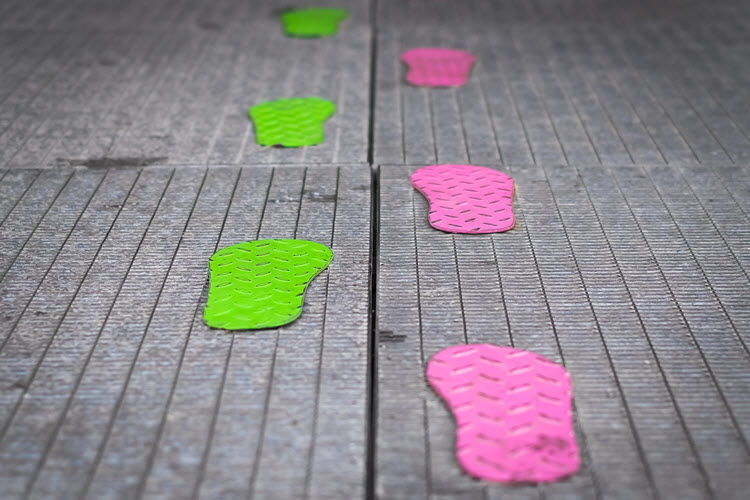
Taking your research paper one step at a time
Whenever it’s morning in the office and the telephone is ringing, countless emails remain unread in my inbox, and questions from Citavi users continue to pour into our help desk, I often wish I could do and think about five things at once. I wish more than anything that I could multi-task.
But I can't.
And that's why I take one thing at a time.
But setting the right priorities isn’t easy.
All my work needs to be completed, but how can I fit it all into one day?
The sad truth? I can't.
When tasks start to pile up higher and higher and our goals seem unachievable, we shut down and struggle to get anything done.
The solution? Concentrate on smaller sub-tasks that you can easily complete.
You shouldn't try to finish everything on your to-do list or write your entire thesis in one day. Instead, concentrate only on each individual step.
For a large project, three sub-tasks per day are a realistic goal.
And if it ends up being fewer? Even better!
For example, for a semester-long writing project, your three tasks could be:
- Head to the library to bring back your overdue book (even though it’s raining!).
- Write one page for the second section of your paper.
- Read the latest issue of an important journal in your field of study to get new ideas for additional research questions.
Sound almost too easy? Then what are you waiting for – get cracking!
Prioritizing: choosing your three most important tasks for the day
But how do you select the tasks you should concentrate on? Perform an ABC analysis to classify your tasks. Ask yourself the following question:
How important is each task for helping me reach my goal, for example, the completion of my research paper?
Keeping this question in mind, organize your tasks into groups:
A = Crucial tasks that need to be done to reach your goal
B = Tasks that still lead to your goal, but that are not as crucial
C = Tasks that you'd like to do but that don't help you reach your goal. Often these ones might be the most fun!
And what to do about the many unexpected tasks that arise during the course of a day. When this happens, self-help author Sháá Wasmund recommends asking yourself two questions to determine how important the task is:
- At the end of the day, what is my goal?
Does this supposedly “urgent” task bring me closer to or further away from my goal? - What are the consequences if I don’t complete this task right away? Can this urgent task potentially wait until the important tasks have been finished?
By thinking critically about your tasks, you can then focus on the ones that will help you reach your goals.
Task planning: how do you not lose track of your tasks?
To avoid overloading your brain, don’t force yourself to remember your tasks. Record them somewhere. Jot down a to-do list on a notepad next to your computer or use an app such as Wunderlist or Asana. For tasks related to your research paper, it makes sense to use Citavi’s task planner.
In Citavi, you not only can create tasks for individual references, but also project tasks. Tag your tasks with high, middle, or low priority. Keep track of your progress by documenting to what extent you’ve completed each task.
Time management: how much time should you allot for each task?
Just as you would for a meeting, make sure to block off the time you’ll need to complete each task.
Make sure to avoid distractions during this time. Once you’re distracted it takes an average of 25 minutes to fully regain your focus.
Don’t forget to eliminate technological distractions as well. According to one study from 2015, Americans check their smartphones 46 times a day on average. Even though it seems like just a quick look, that's a lot of time that can add up if you're not careful.
Now that you have time set aside to concentrate, you may wonder how much time you should spend on each task. Are longer periods of uninterrupted work better? Perhaps not – one survey found that if you try to concentrate on a particular task for longer than 90 minutes, the chances that you’ll be less productive are higher.
For this reason, it’s important to take breaks after each completed task. Recharge your batteries by going for a walk or listening to music.
Or just look out the window and let your thoughts wander for a little while.
Sounds a lot better than stressful multitasking, doesn’t it?
Do you have any task management strategies that work especially well for you? How do you decide which tasks to work on each day, when to do them, and how to manage them?
Let us know on the Citavi Facebook page!
Further reading:
Kurtzberg, Terri R.; Gibbs, Jennifer L. (2017): Distracted: Staying connected without losing focus. Santa Barbara, California: Praeger (Contemporary world issues).
Wasmund, Sháá (2016): Do less, get more: How to work smart and live life your way. London: Penguin Life
About Jana Behrendt

Jana Behrendt, a librarian by training, is deeply interested in everything related to personal information management. However, she does not read as much as you would expect from a librarian. She loves hiking in the Swiss Alps – as long as she doesn’t have to look down.
.
